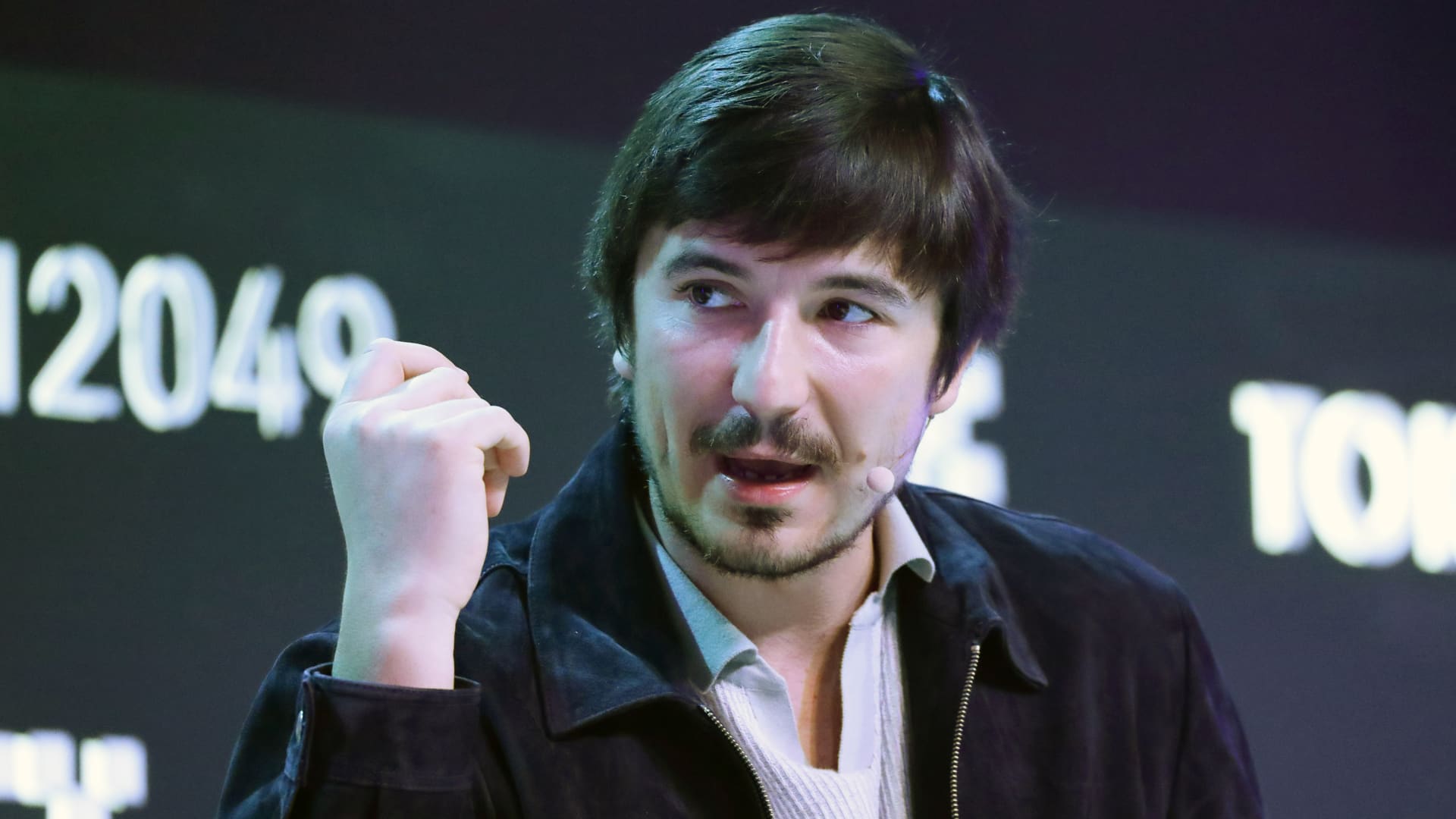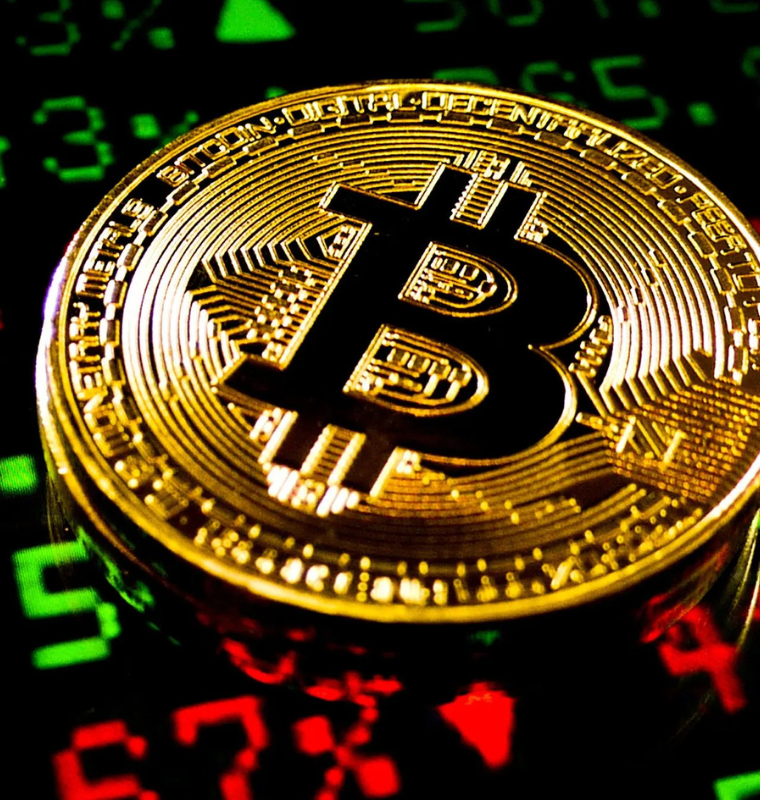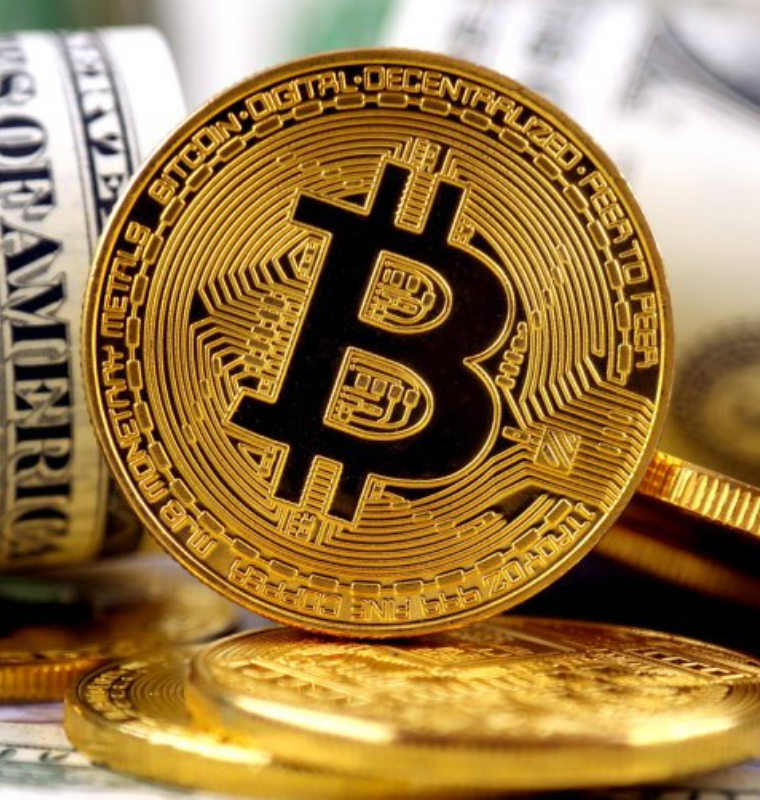Robinhood CEO Vlad Tenev Declares Tokenization Is Coming for All Financial Markets
Robinhood CEO Vlad Tenev Declares Tokenization Is Coming for All Financial Markets
By
David Goldfarb
Last updated:
October 3, 2025
First Published:
October 3, 2025

Vlad Tenev, chief executive officer of Robinhood Markets Inc., during the Token2049 conference in Singapore, on Thursday, Oct. 2, 2025. | Bloomberg | Bloomberg | Getty Images
A Vision of Tokenized Finance
At the TokenWorld 2049 conference in Singapore, Robinhood CEO Vlad Tenev presented a bold vision for the future of finance. He likened tokenization—the process of converting real-world assets into digital tokens on a blockchain—to an unstoppable force, describing it as a "freight train" that will "eat the entire financial system." Tenev emphasized that this shift is not merely a trend but a fundamental transformation that will merge traditional finance with blockchain technology.
Robinhood's Strategic Move
Robinhood has already taken significant steps toward realizing this vision. In June, the company launched tokenized equities for European Union users, allowing them to trade over 200 U.S. stocks and ETFs, including major companies like Nvidia, Apple, and Microsoft. These tokenized assets are issued in partnership with blockchain firm Arbitrum and are tradable 24/7, five days a week. This move positions Robinhood at the forefront of the tokenization movement, offering global access to U.S. markets.
Expanding Horizons
Looking ahead, Robinhood plans to extend its tokenization efforts beyond equities. The company is exploring the tokenization of real estate, aiming to provide retail investors with fractional ownership opportunities in high-value properties. Tenev envisions a future where all financial products, including stocks, bonds, and real estate, are recorded "on-chain," eliminating the distinctions between crypto and traditional finance.
Regulatory Challenges
Despite the promising prospects, tokenization faces regulatory hurdles, particularly in the United States. Tenev pointed out that while Europe has made strides in creating a regulatory framework for digital assets, the U.S. has yet to catch up. He advocates for regulatory clarity to facilitate the widespread adoption of tokenized assets and to ensure that the U.S. remains competitive in the evolving financial landscape.
The Role of Institutional Players
Tenev's vision is gaining traction among institutional investors. Financial giants like Morgan Stanley and BlackRock have expressed interest in tokenization, recognizing its potential to revolutionize asset management and trading. Their involvement signals a growing acceptance of blockchain technology in mainstream finance and underscores the importance of regulatory clarity to support this transition.
Democratizing Access
One of the key benefits of tokenization is its ability to democratize access to financial markets. By converting assets into digital tokens, Robinhood aims to make investments more accessible to retail investors, particularly those outside the U.S. The 24/7 trading model and fractional ownership opportunities lower the barriers to entry, allowing a broader audience to participate in global markets.
The Future of Finance
Tenev predicts that within five to ten years, tokenization will become the default method for recording and trading financial assets. He envisions a fully integrated financial system where traditional and digital assets coexist seamlessly on blockchain platforms. This future would mark a significant departure from the current fragmented financial ecosystem, offering greater efficiency and inclusivity.
Potential Risks and Considerations
While the benefits of tokenization are compelling, there are potential risks and considerations. The volatility of digital assets, cybersecurity concerns, and the need for robust legal frameworks are challenges that must be addressed. Tenev acknowledges these issues but believes that with proper regulation and technological advancements, the benefits will outweigh the risks.
Vlad Tenev's declaration at TokenWorld 2049 highlights a pivotal moment in the evolution of finance. As Robinhood continues to lead the charge in tokenizing traditional assets, the financial industry stands on the cusp of a digital transformation. The coming years will determine how quickly and effectively tokenization can reshape the financial landscape, making it more inclusive, efficient, and integrated.
Popular articles
Subscribe to unlock premium content
Disney’s Timeless Magic and How the Entertainment Giant Continues to Shape Culture and Innovation

Imran Khan’s Economic Missteps Amid Political Chaos in Pakistan

The Philippines’ Digital Shift How Remittances and BPO Are Fueling Growth

Disney’s Timeless Magic and How the Entertainment Giant Continues to Shape Culture and Innovation

Imran Khan’s Economic Missteps Amid Political Chaos in Pakistan

Disney’s Timeless Magic and How the Entertainment Giant Continues to Shape Culture and Innovation









